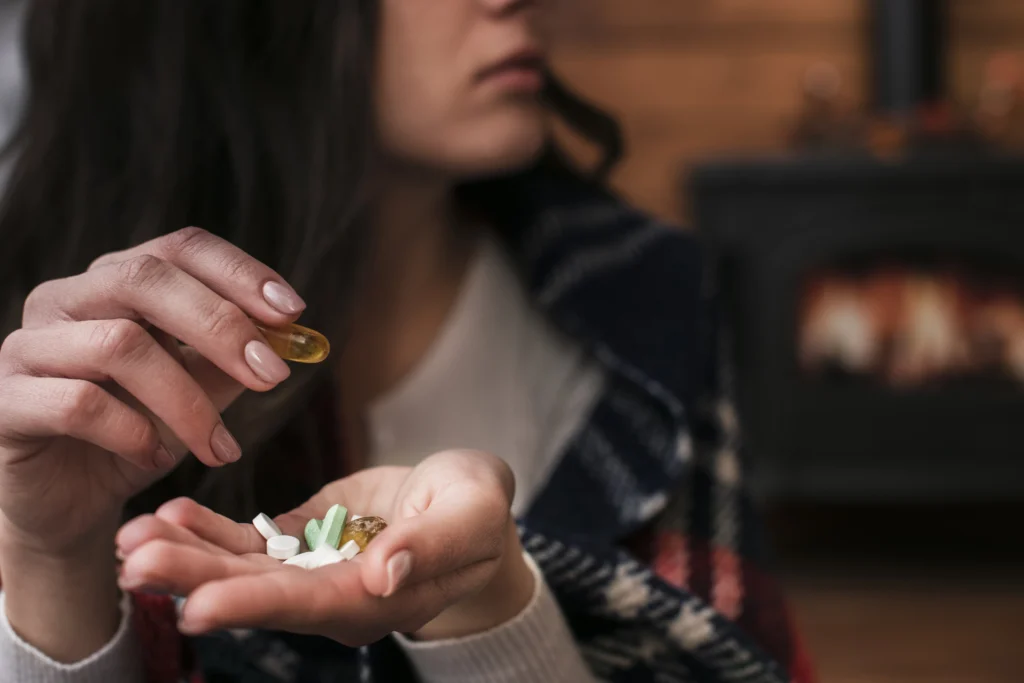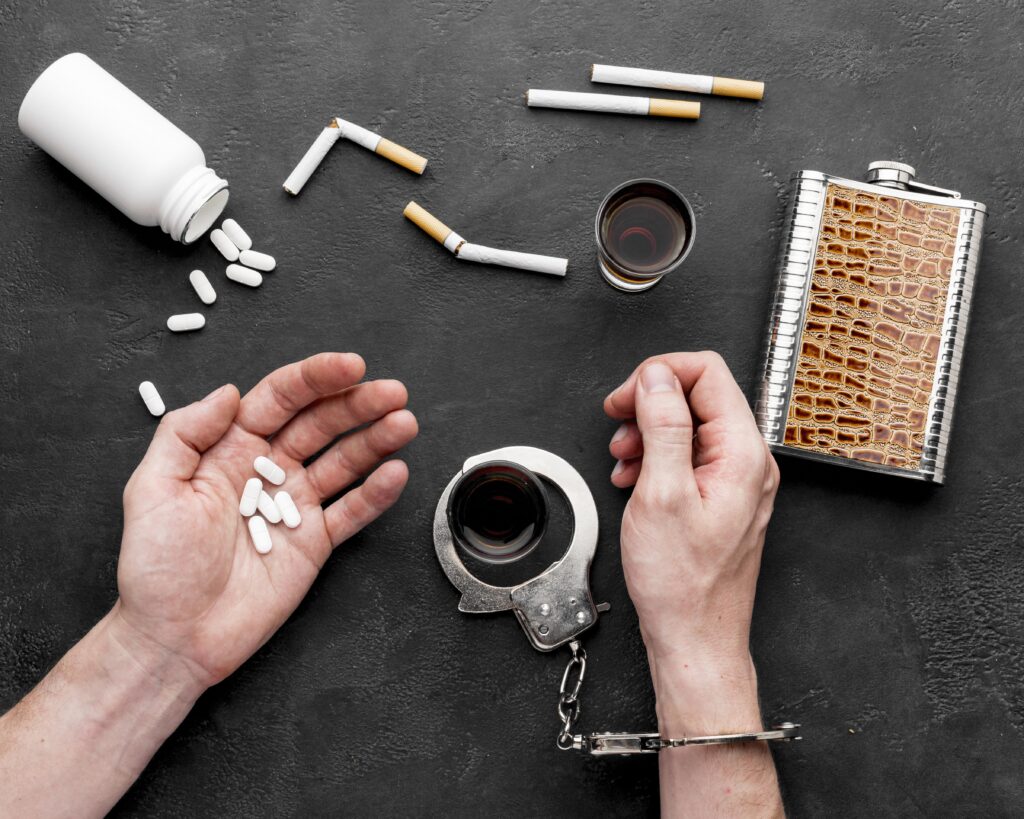Table of Contents

As the new school year approaches, it’s essential for parents to have open and honest conversations with their teenagers about substance abuse prevention. Understanding the importance of such discussions is crucial, as it plays a significant role in safeguarding your teen’s future.
In this article, we will explore effective strategies to initiate and navigate these conversations, dispel common myths around substance abuse, and establish clear expectations and consequences. By equipping yourself with these valuable insights, you can better support your teen in making informed decisions and prioritizing their well-being.
Understanding the Importance of Substance Abuse Prevention

Before diving into the specifics of discussing substance abuse with your teen, it’s crucial to grasp the gravity of the situation. Substance abuse can have a profound and lasting impact on teenagers, both mentally and physically. It not only jeopardizes their academic performance but also increases the likelihood of involvement in criminal activities and other risky behaviors.
To proactively tackle these issues, prevention measures become paramount. Establishing a strong foundation of knowledge and awareness helps teens understand the risks associated with substance abuse and empowers them to make healthier choices.
The Impact of Substance Abuse on Teens
Substance abuse can lead to severe consequences for teenagers. It affects their brain development, impairs cognitive function, and hinders their ability to learn and make sound decisions. Additionally, substance abuse increases the risk of mental health disorders such as depression and anxiety in teens already vulnerable to these conditions. As adults, it is our responsibility to protect and guide them toward a better future.
Teenagers who engage in substance abuse may experience a decline in academic performance. Their ability to concentrate and retain information is compromised, leading to lower grades and missed opportunities. Moreover, substance abuse can disrupt their social relationships, as it often leads to isolation and withdrawal from friends and family.
Physically, substance abuse takes a toll on teenagers’ bodies. It can lead to various health issues, including liver damage, heart problems, and respiratory complications. The long-term effects of substance abuse can be devastating, impacting their overall well-being and quality of life.
Why Prevention is Better than Cure
When it comes to substance abuse, prevention is undeniably better than cure. By proactively addressing the issue, we can mitigate the potential harm that substances can cause to our teenagers. It is essential to shift the focus from reacting to substance abuse problems to actively preventing them in the first place. Through education, open dialogue, and establishing healthy habits, we can empower our teens to resist peer pressure and navigate through challenging situations.
Prevention efforts not only save lives but also save resources. The financial burden of treating substance abuse-related issues can be overwhelming for individuals, families, and society as a whole. By investing in prevention programs, we can reduce the economic impact of substance abuse and redirect those resources toward other critical areas, such as education and healthcare.
Furthermore, prevention fosters a supportive and nurturing environment for teenagers. It encourages open communication, trust, and understanding between parents, educators, and the community. By working together, we can create a safety net that protects our teens from the dangers of substance abuse and provides them with the necessary tools to lead healthy and fulfilling lives.
Preparing for the Discussion

When it comes to discussing substance abuse prevention with your teen, preparation is key. By taking the time to plan and set the stage for this conversation, you increase the chances of it being productive and impactful.
One important aspect of preparing for the discussion is choosing the right time and place. Selecting an appropriate time and place for the discussion is crucial. Find a quiet and comfortable environment that allows for privacy and eliminates distractions. This could be in your living room, a quiet corner of a coffee shop, or even during a walk in the park. The key is to choose a location where both you and your teen can feel at ease and have an open conversation.
In addition to the physical environment, it is also important to choose a time when both you and your teen can be fully present. Avoid scheduling the discussion during a time when either of you may be rushed or preoccupied. Instead, find a time when you can both dedicate your full attention to the conversation. This will ensure a meaningful and uninterrupted discussion.
Gathering Reliable Information
Prior to embarking on this discussion, it is crucial to gather reliable information about substance abuse and its consequences. Equip yourself with the facts and statistics that will help you address any concerns or questions your teen may have.
Start by researching reputable sources such as government websites, educational institutions, and reputable health organizations. Look for information that is evidence-based and supported by research. This will ensure that you have accurate and up-to-date information to share with your teen.
| By arming yourself with reliable information, you establish yourself as a knowledgeable source of information.
This will not only help you address any concerns or questions your teen may have, but it will also foster trust and credibility. Your teen will be more likely to listen and take your advice seriously if they see that you have done your homework and are well-informed.
Additionally, gathering reliable information will also help you feel more confident and prepared for the discussion. It will allow you to approach the conversation with a sense of authority and assurance, which can greatly impact its effectiveness.
Effective Communication Strategies

Engaging in effective communication is vital when discussing substance abuse prevention with your teen. Utilizing various strategies can help ensure that your message is understood and received positively.
When it comes to discussing sensitive topics like substance abuse prevention with your teen, it’s essential to use communication strategies that foster open and honest dialogue. One effective strategy is using open-ended questions. Instead of asking simple yes or no questions, try asking questions that encourage your teen to express their thoughts and feelings more fully. For example, instead of asking, “Did you have a good day?” you could ask, “What was the most challenging part of your day?” By asking open-ended questions, you create an opportunity for meaningful dialogue and deeper understanding.
Active listening and empathy are invaluable skills that can help you connect with your teen on a deeper level. When engaging in a conversation about substance abuse prevention, it’s crucial to be present and fully attentive. Additionally, practice empathy by putting yourself in their shoes and trying to understand their perspective without judgment. Validate their emotions and let them know that you are there to support them. By truly understanding their perspective, you can address their concerns effectively and build a stronger rapport.
| Show your teen that you are genuinely interested in what they have to say by maintaining eye contact, nodding, and providing verbal cues that you are actively listening.
Furthermore, it’s important to create a safe and non-judgmental environment for your teen to express themselves. Avoid interrupting or dismissing their thoughts and feelings. Instead, encourage them to share openly by using phrases like, “I’m here to listen,” or “Your opinion matters to me.” By creating a safe space for communication, you foster trust and encourage your teen to be more open and honest with you.
In addition to open-ended questions, active listening, and empathy, it’s also helpful to use visual aids or storytelling techniques to engage your teen in the conversation. For example, you could use real-life examples or personal stories to illustrate the potential consequences of substance abuse. By making the topic more relatable and tangible, you increase the chances of your teen understanding the importance of substance abuse prevention.
Remember, effective communication is a two-way street. Encourage your teen to ask questions and share their thoughts as well. By creating a collaborative and open dialogue, you empower your teen to take an active role in their own substance abuse prevention.
Addressing Common Myths about Substance Abuse

When discussing substance abuse prevention with your teen, it is essential to dispel common myths and misconceptions surrounding the topic. Challenging these beliefs with accurate information can help your teen make informed decisions.
Substance abuse is a complex issue that affects individuals from all walks of life. It is important to address the myths associated with it to ensure that our teens have a clear understanding of the risks involved.
Debunking the “It’s Just a Phase” Myth
A common myth associated with teen substance abuse is the belief that it is merely a phase that they will eventually grow out of. However, scientific research has shown that substance abuse during adolescence can have long-lasting effects on brain development and overall well-being.
During the teenage years, the brain is still developing, particularly the prefrontal cortex, which is responsible for decision-making and impulse control. Substance abuse can interfere with this development, leading to long-term consequences. By debunking the “it’s just a phase” myth, we can shed light on the potential dangers and encourage responsible decision-making.
It is crucial to have open and honest conversations with our teens about the risks associated with substance abuse. By providing them with accurate information and emphasizing the potential long-term effects, we can help them understand the importance of making healthy choices.
Challenging the “Everyone is Doing It” Belief
Another prevalent myth is the belief that “everyone is doing it.” This misconception can put immense pressure on our teens to conform to societal norms and engage in substance abuse.
It is essential to address this belief head-on and help our teens understand that not everyone is engaging in substance abuse. By encouraging them to surround themselves with positive influences and reinforcing the importance of making independent choices based on their own values, we can empower them to resist peer pressure.
Teens need to know that they have the power to make their own decisions and that they do not have to follow the crowd. By fostering a sense of self-confidence and providing them with the tools to resist peer pressure, we can help our teens make choices that align with their own values and aspirations.
Furthermore, it is crucial to educate our teens about the consequences of substance abuse. By highlighting real-life stories and statistics, we can illustrate the potential risks and encourage them to prioritize their well-being over societal pressures.
In conclusion, addressing common myths and misconceptions about substance abuse is crucial when discussing prevention with our teens. By debunking the “it’s just a phase” myth and challenging the belief that “everyone is doing it,” we can provide our teens with the knowledge and confidence they need to make informed decisions and lead healthy, substance-free lives.
Setting Clear Expectations and Consequences

Establishing clear expectations and consequences is essential in helping your teen avoid substance abuse. By setting boundaries and outlining the potential repercussions, you provide them with a framework that emphasizes responsible decision-making.
Establishing Rules and Boundaries
Clearly communicate your expectations and establish household rules around substance use. By setting boundaries, you help your teen understand what is acceptable and encourage them to make healthier choices.
Consequences of Substance Abuse
Clearly outline the consequences of substance abuse while emphasizing that these consequences are in place out of love and concern for their well-being. Discuss the impact that substance abuse can have on various aspects of their life, such as academic performance, relationships, and future opportunities.
Remember, as a parent, your role in substance abuse prevention is pivotal. By having open and honest discussions with your teen, dispelling myths, and setting clear expectations, you empower them to make informed choices and prioritize their well-being. Together, let’s work toward building a healthier and safer future for our teens.

Originally from the Saginaw, Eagle Mountain area, Austin Davis earned a Bachelor of Science in Pastoral Ministry from Lee University in Cleveland, TN and a Master of Arts in Counseling from The Church of God Theological Seminary. He then went on to become a Licensed Professional Counselor-Supervisor in the State of Texas.
Austin’s professional history includes both local church ministry and clinical counseling. At a young age, he began serving youth at the local church in various capacities which led to clinical training and education. Austin gained a vast knowledge of mental health disorders while working in state and public mental health hospitals. This is where he was exposed to almost every type of diagnosis and carries this experience into the daily treatment.
Austin’s longtime passion is Clearfork Academy, a christ-centered residential facility focused on mental health and substance abuse. He finds joy and fulfillment working with “difficult” clients that challenge his heart and clinical skill set. It is his hope and desire that each resident that passes through Clearfork Academy will be one step closer to their created design.
Austin’s greatest pleasures in life are being a husband to his wife, and a father to his growing children. He serves at his local church by playing guitar, speaking and helping with tech arts. Austin also enjoys being physically active, reading, woodworking, and music.




